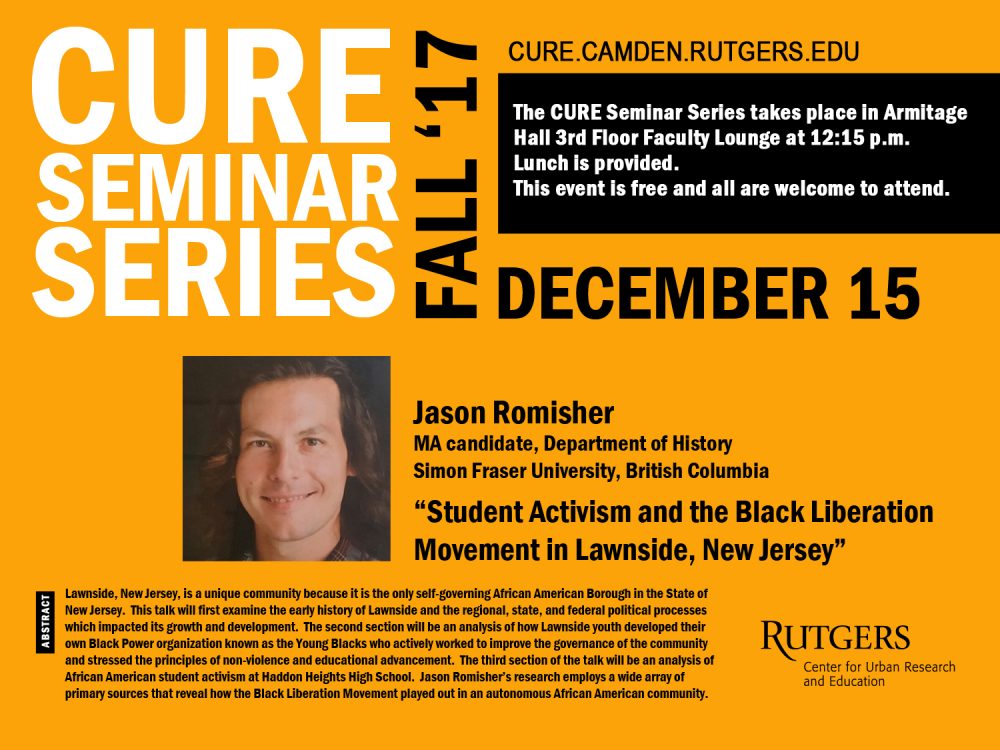 Lawnside, New Jersey, is a unique community because it is the only self-governing African American Borough in the State of New Jersey. This talk will first examine the early history of Lawnside and the regional, state, and federal political processes which impacted its growth and development. The second section will be an analysis of how Lawnside youth developed their own Black Power organization known as the Young Blacks who actively worked to improve the governance of the community and stressed the principles of non-violence and educational advancement. The third section of the talk will be an analysis of African American student activism at Haddon Heights High School. Jason Romisher’s research employs a wide array of primary sources that reveal how the Black Liberation Movement played out in an autonomous African American community.
Lawnside, New Jersey, is a unique community because it is the only self-governing African American Borough in the State of New Jersey. This talk will first examine the early history of Lawnside and the regional, state, and federal political processes which impacted its growth and development. The second section will be an analysis of how Lawnside youth developed their own Black Power organization known as the Young Blacks who actively worked to improve the governance of the community and stressed the principles of non-violence and educational advancement. The third section of the talk will be an analysis of African American student activism at Haddon Heights High School. Jason Romisher’s research employs a wide array of primary sources that reveal how the Black Liberation Movement played out in an autonomous African American community.
Category: Seminars
CURE Seminar Series: “A Mission Field Next Door: Evangelical Higher Education in the Era of White Flight,” with Jesse Curtis
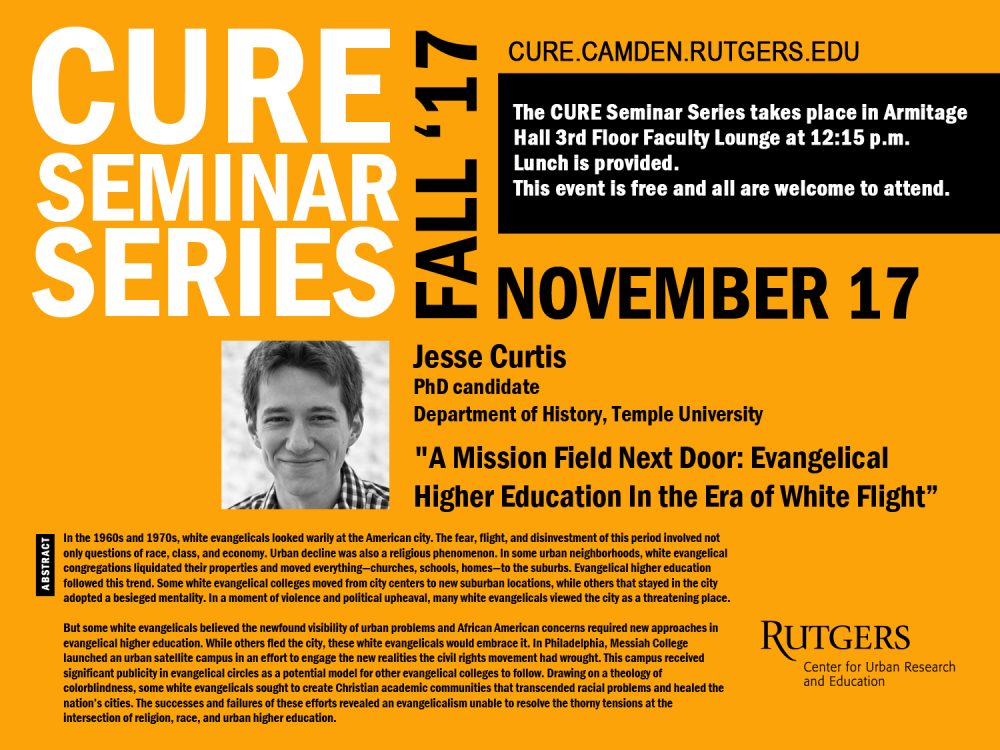
In the 1960s and 1970s, white evangelicals looked warily at the American city. The fear, flight, and disinvestment of this period involved not only questions of race, class, and economy. Urban decline was also a religious phenomenon. In some urban neighborhoods, white evangelical congregations liquidated their properties and moved everything – churches, schools, homes – to the suburbs. Evangelical higher education followed this trend. Some white evangelical colleges moved from city centers to new suburban locations, while others that stayed in the city adopted a besieged mentality. In a moment of violence and political upheaval, many white evangelicals viewed the city as a threatening place.
CURE Seminar Series: “On the Political Meanings of the Transformation of Property and Ownership in the United States,” with James DeFilippis
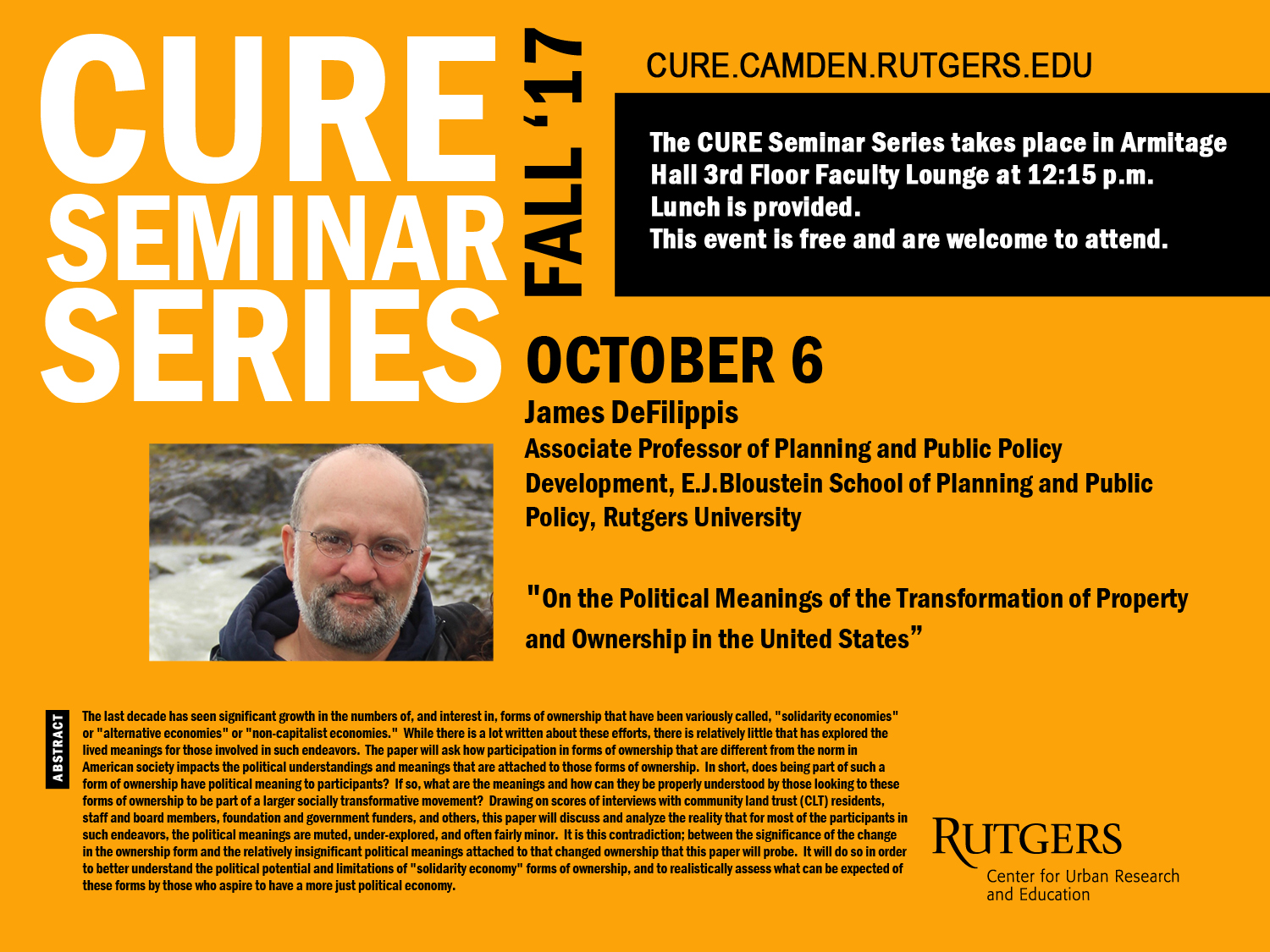
The last decade has seen significant growth in the numbers of, and interest in, forms of ownership that have been variously called, “solidarity economies” or “alternative economies” or “non-capitalist economies.” While there is a lot written about these efforts, there is relatively little that has explored the lived meanings for those involved in such endeavors. The paper will ask how participation in forms of ownership that are different from the norm in American society impacts the political understandings and meanings that are attached to those forms of ownership. In short, does being part of such a form of ownership have political meaning to participants? If so, what are the meanings and how can they be properly understood by those looking to these forms of ownership to be part of a larger socially transformative movement? Drawing on scores of interviews with community land trust (CLT) residents, staff and board members, foundation and government funders, and others, this paper will discuss and analyze the reality that for most of the participants in such endeavors, the political meanings are muted, under-explored, and often fairly minor. It is this contradiction; between the significance of the change in the ownership form and the relatively insignificant political meanings attached to that changed ownership that this paper will probe. It will do so in order to better understand the political potential and limitations of “solidarity economy” forms of ownership, and to realistically assess what can be expected of these forms by those who aspire to have a more just political economy.
CURE Seminar Series: “If You Can Weather the Storm”: Urban Inequality and the Transition to Adulthood” with Susan Clampet-Lundquist
Adolescence and early adulthood is a time of defining what one is “about” – finding and claiming an identity. We know a lot about this process for middle-class youth, but not as much for young people that have grown up in some of the poorest neighborhoods in the U.S. This talk draws from the book, Coming of Age in the Other America, to discuss how neighborhoods matter, outline identity-making for a group of youth in Baltimore, and explore how we can use public policy to disrupt the cycle of neighborhood and family poverty.
Susan Clampet-Lundquist is an associate professor of sociology at Saint Joseph’s University. She received her PhD in Sociology and Master’s in Demography from the University of Pennsylvania, and a Master’s in Urban Studies from Temple University. Her research focuses on urban neighborhoods, families, adolescent risk behavior, and social policy. Much of her social policy work has focused on the effects of housing mobility initiatives for low-income families in Philadelphia and Baltimore who have moved through HOPE VI and Moving to Opportunity. Coming of Age in the Other America, her book written with Stefanie DeLuca and Kathryn Edin, examines urban inequality through the experiences of young adults in Baltimore. In addition, she is working on a research project in which 150 teenagers in high-crime neighborhoods in Philadelphia were interviewed about their concerns about neighborhood safety and experiences with police.
Date & Time
September 15, 2017
12:15 pm-1:30 pm
Location
Armitage Hall
Faculty Lounge, 3rd Floor
311 N. Fifth St.
Camden, NJ
Visitor Parking
Parking in Rutgers–Camden lots is by permit only. Visitors to Rutgers–Camden should obtain a temporary permit to park in a lot from 8 a.m. Mondays through 5 p.m. Fridays. Contact Parking and Transportation for more information.
Parking and Transportation
(within the Rutgers University Police Department)
409 North Fourth Street
(856) 225-6137
Visit these sites for directions to campus and to view a campus map
CURE Seminar Series: Social Enterprise: Examining the Quest to Humanize Business
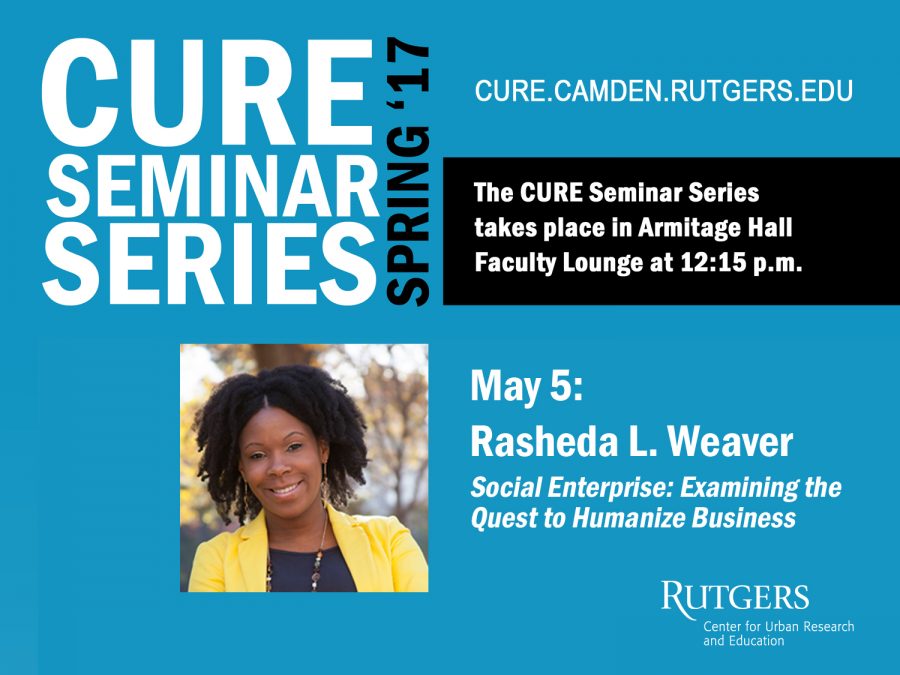 Social enterprises are businesses that utilize their revenue to combat social problems. Since the millennium, social enterprises have significantly grown throughout the United States. This talk will focus on Doctoral Candidate Rasheda L. Weaver’s empirical research study of 115 social enterprises throughout the nation. The discussion will describe the social issues social enterprises target, how they generate revenue, the laws they incorporate under, and the contexts in which they develop.
Social enterprises are businesses that utilize their revenue to combat social problems. Since the millennium, social enterprises have significantly grown throughout the United States. This talk will focus on Doctoral Candidate Rasheda L. Weaver’s empirical research study of 115 social enterprises throughout the nation. The discussion will describe the social issues social enterprises target, how they generate revenue, the laws they incorporate under, and the contexts in which they develop.
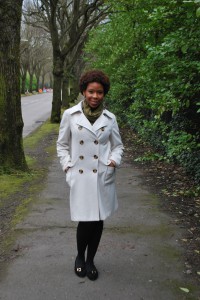 Rasheda L. Weaver is a fourth-year PhD candidate in the Public Affairs program at Rutgers University-Camden that will graduate in May 2017. Her research interests include social entrepreneurship, community development, and applied psychology.
Rasheda L. Weaver is a fourth-year PhD candidate in the Public Affairs program at Rutgers University-Camden that will graduate in May 2017. Her research interests include social entrepreneurship, community development, and applied psychology.
This event is FREE and open to the public.
Lunch will be provided.
